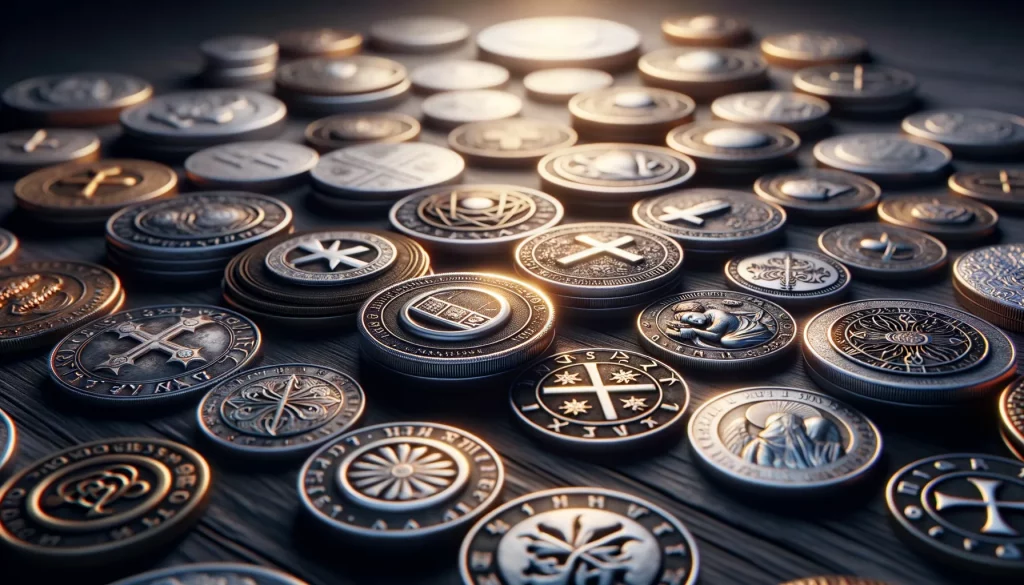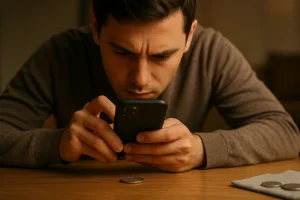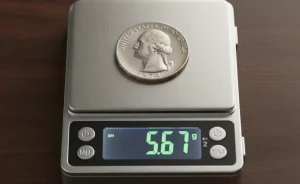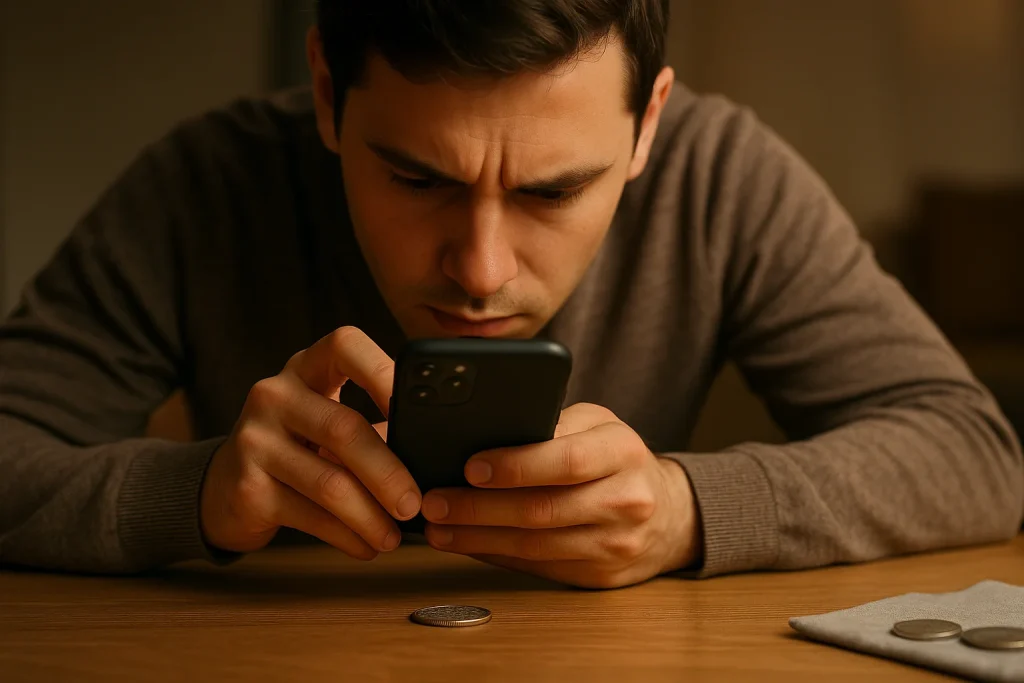Historical Significance of Coins in Religion
Coins as Witnesses to Ancient Spiritual Stories
Can you imagine holding a small, weathered coin in your hand and feeling the pulse of history within it? Throughout centuries, coins have been more than mere currency—they’ve acted as silent witnesses to humanity’s profound spiritual journeys. Take, for instance, the **30 pieces of silver** tied to Judas Iscariot in Biblical lore. These coins were not just payment but symbols of betrayal and redemption, echoing through millennia.
Some ancient coins bore the likenesses of deities or sacred symbols like the **cross**, **crescent moon**, or **lotus flower**, intertwining faith and economy. Their very design was a prayer etched in metal—a tangible connection to the divine. It’s nothing short of fascinating to think these objects were once carried by priests, pilgrims, or merchants navigating the spiritual landscapes of their age.
- The widow’s mite referenced in the Bible—a story of humble yet profound generosity.
- Coins cast into sacred waters as offerings to gods in Roman and Celtic traditions.
Every scratch, every worn edge tells a tale. These coins are relics, whispers of how deeply intertwined money and faith have always been.
Coins as Symbols of Faith and Devotion
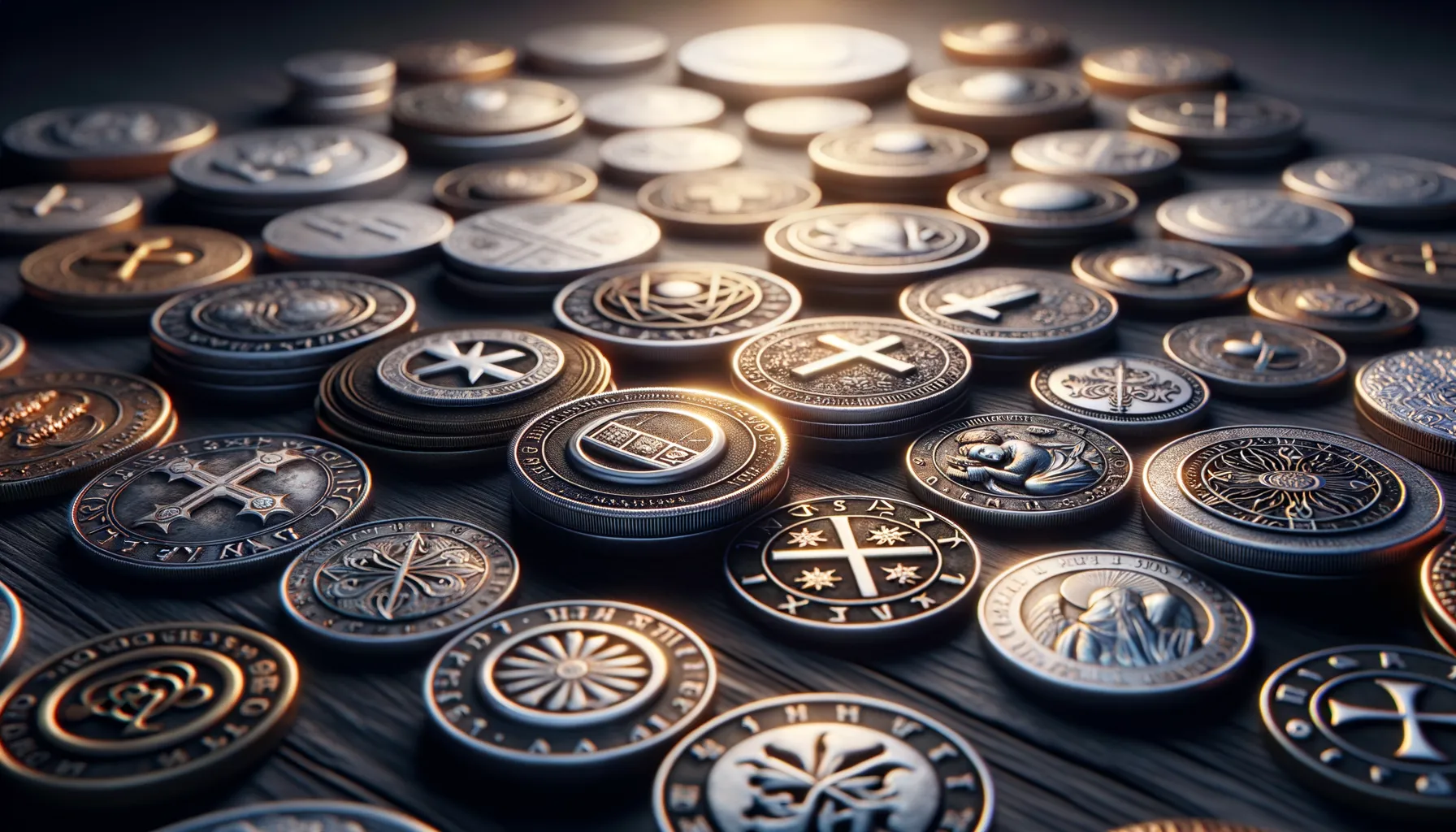
Imprinted Beliefs: When Coins Tell Stories of the Divine
Coins, small as they may be, have often carried the weight of deep faith and devotion. Imagine holding a coin engraved with a serene depiction of a saint or the intricate symbols of a sacred text—it’s not just a piece of metal but a physical manifestation of belief. From the crisp clinking of Roman coins stamped with gods like Jupiter to Byzantine-era treasures featuring the solemn face of Christ, these artifacts spoke louder than words ever could.
For many, coins became vessels of prayer and blessings:
- Some Christians tucked sacred coins into their homes for divine protection.
- Pilgrims across faiths carried coins etched with holy scenes as tokens of spiritual journeys.
- In Hindu traditions, gold coins adorned with Lakshmi, the goddess of wealth, symbolize prosperity and piety.
Devotion in Every Detail
Do you know what makes these coins truly extraordinary? The details. Flawless calligraphy on Islamic dinars, shining praise for Allah’s greatness. A shimmering silver shekel once offered at Jerusalem’s Temple… These coins weren’t just money; they whispered stories of devotion, struggles, and unwavering faith.
Ceremonial Uses of Coins Across Cultures
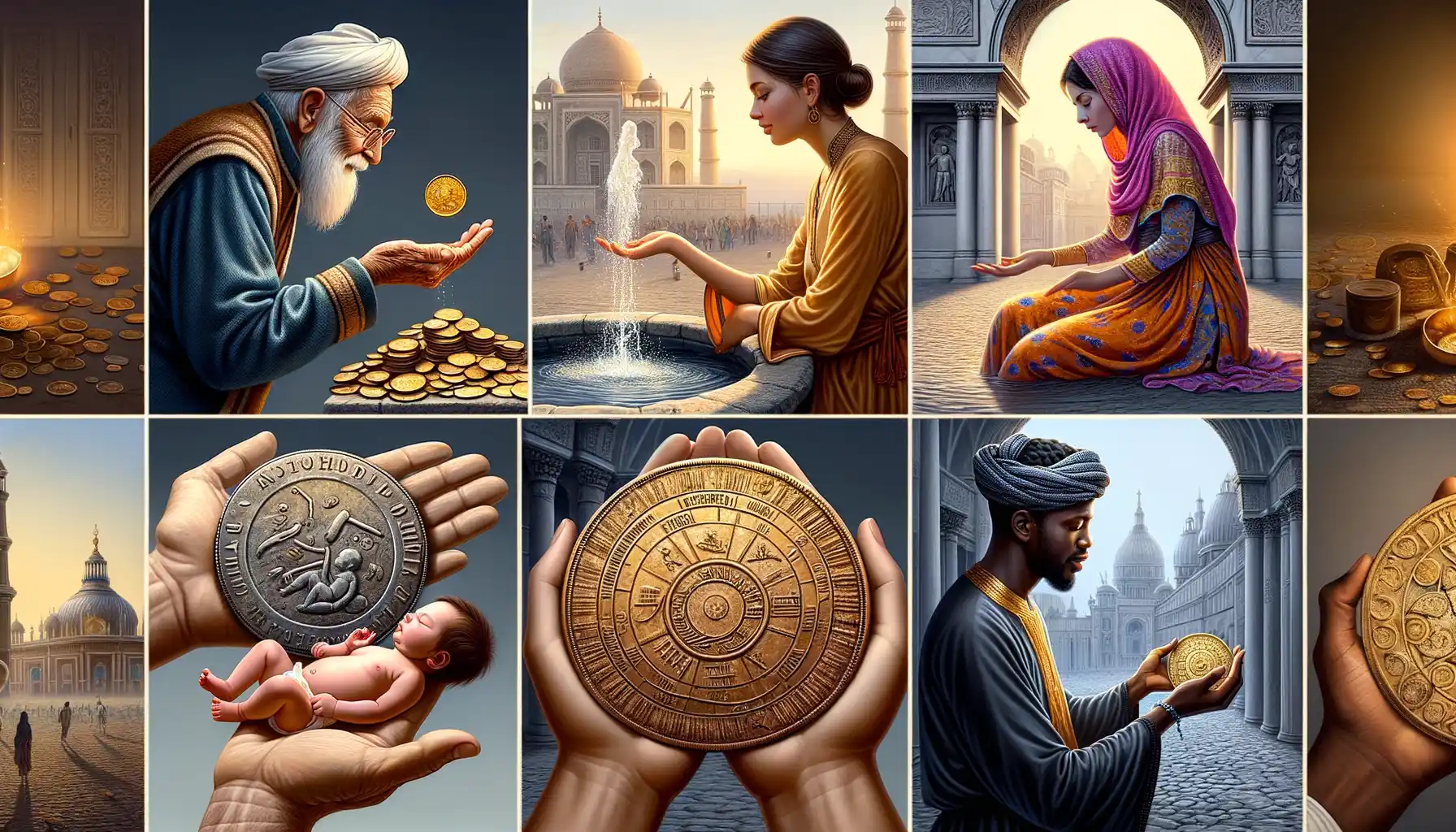
A Global Tapestry of Traditions
Coins, those small, glimmering objects we often overlook, have been at the heart of countless ceremonies around the world. From life’s joyous beginnings to solemn farewells, they carry not just monetary value but the weight of culture and belief.
Have you heard of the Filipino tradition during weddings? A symbolic “arras,” or set of thirteen coins, is exchanged between bride and groom, representing prosperity and shared responsibility in marriage. Or take a trip to Greece, where tossing coins into a baptismal basin is thought to bless the child with health and fortune. These coins don’t just sit in pockets; they weave themselves into the narrative of our most meaningful moments.
- In China, placing coins under pillows during Lunar New Year attracts good luck.
- Across parts of Europe, coins are thrown into fountains not only for wishes but as offerings to ancient water spirits.
- In India, coins wrapped in red cloth and tied to trees are believed to carry prayers straight to the divine.
Isn’t it amazing how such simple objects become bridges between worlds—the physical and the spiritual, the individual and the communal? Coins don’t just jingle; they whisper stories of love, hope, and faith.
Rituals That Cross Time and Space
Imagine standing at the edge of the Trevi Fountain in Rome, surrounded by strangers yet united in the ritual of tossing a coin over your shoulder. That moment feels almost magical, doesn’t it? Around the globe, similar acts blur the lines between tradition and spirituality.
For instance, the Yoruba people of West Africa include coins in divination practices, asking deities for guidance in important life decisions. Meanwhile, in Japan, visitors drop coins at Shinto shrines before ringing the bell to call upon the gods. The sound of metal meeting metal becomes a conversation with the heavens.
There’s a sense of universality here—a shared understanding that coins aren’t mere currency. They’re conduits, tangible symbols of faith, trust, and gratitude. Whether you’re offering one to a shrine, a fountain, or a loved one, the gesture speaks volumes in every language.
Coins in Modern Religious Practices
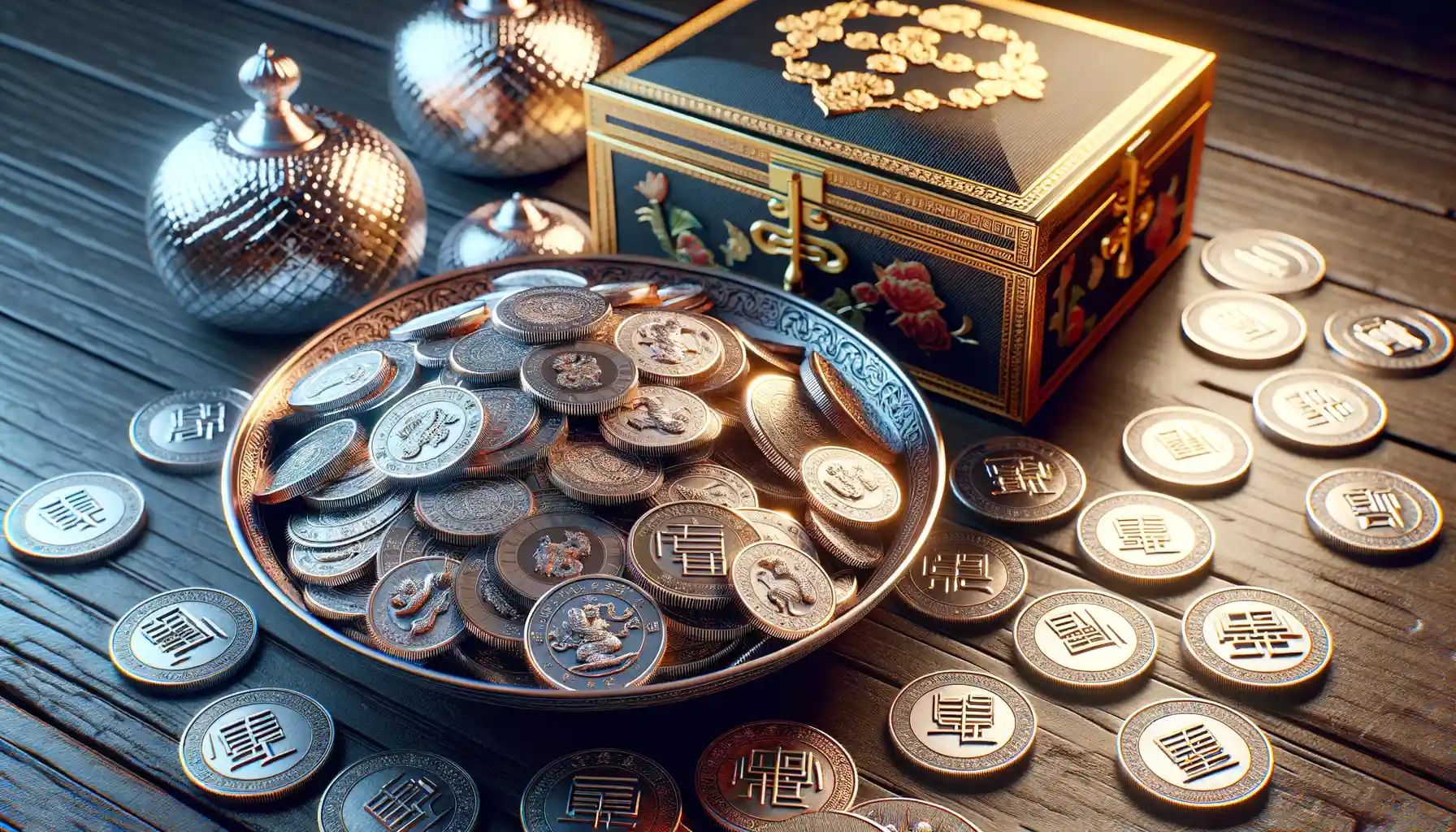
Coins as Acts of Faith in Contemporary Life
In today’s fast-paced, modern world, you might think the practice of using coins in religious contexts has faded into the background. But in reality, these small, unassuming objects continue to hold immense spiritual power. They’re not just spare change rattling in your pocket—they’re vessels of meaning, hope, and faith.
Consider this: when people toss coins into sacred fountains or temple donation boxes, it’s not about the monetary value. It’s about the act of giving and trusting that a higher power is hearing their silent wishes. Coins become whispers of prayers, carried by metal instead of words.
Faith-based traditions around coins today include:
- Charity offerings: Many religious groups encourage giving coins as alms to those in need, reflecting humility and generosity.
- Blessed coins: In some faiths, coins are blessed by clergy and then carried as protective talismans, tucked into wallets or sewn into garments.
Even weddings incorporate coins, like the cherished “arras” in Hispanic ceremonies—thirteen gold pieces symbolizing shared wealth and trust between spouses. Every coin used today is imbued with purpose, proving that modern faith still finds beauty in their timeless gleam.
The Enduring Legacy of Coins in Spirituality
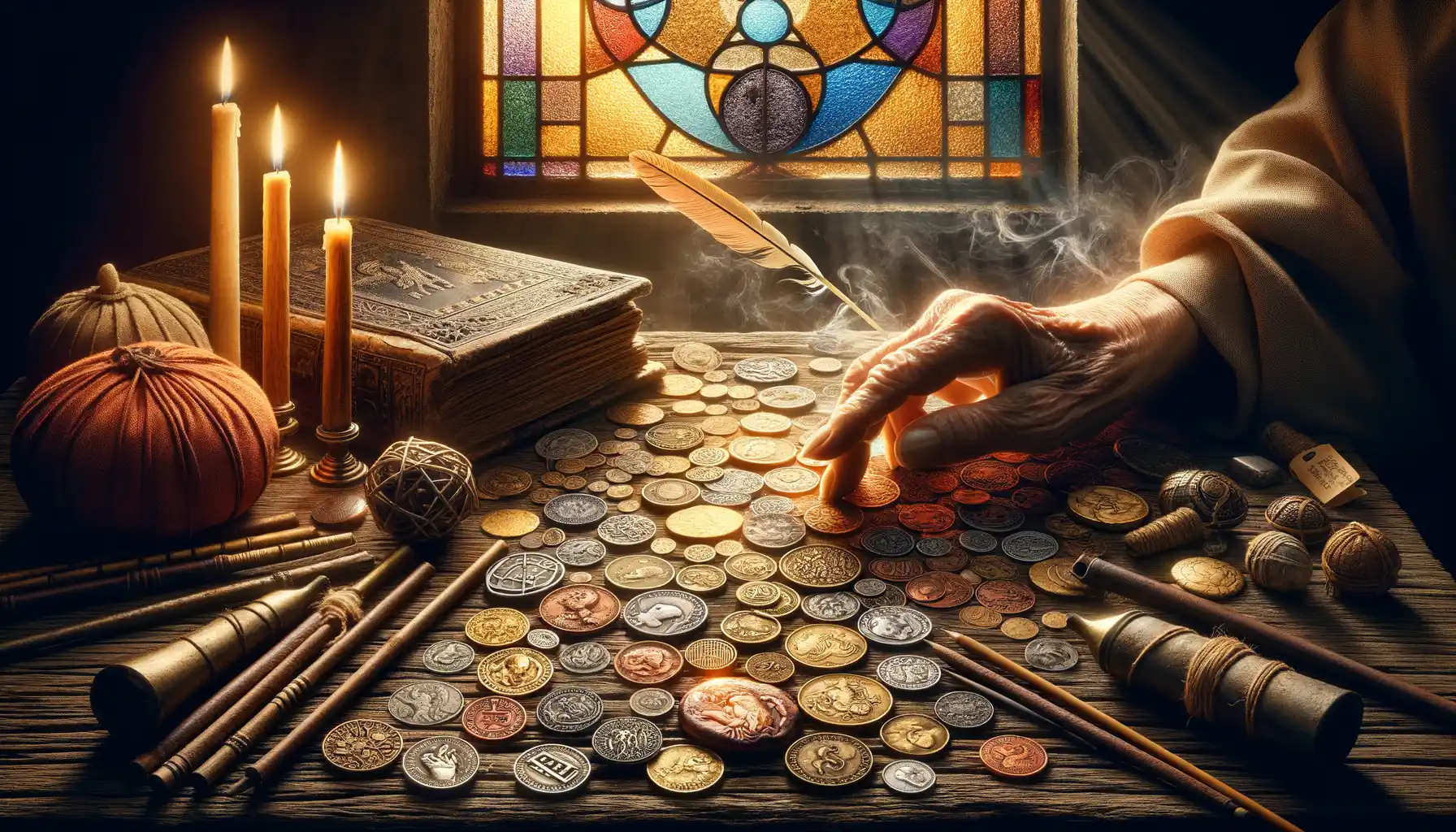
Coins as Whispering Echoes of the Soul
For centuries, coins have been more than just metal discs—they’ve served as quiet witnesses to our innermost hopes, prayers, and dreams. They sit humbly in our hands but carry a weight that’s spiritual, almost otherworldly. Think about it: why do we instinctively toss a coin into a fountain and make a wish? It’s not just tradition. It’s a deeply personal moment, a pact between the tangible and the divine.
Across cultures, coins have been seen as carriers of energy. Whether left at a shrine to honor ancestors or pressed into palms during blessings, they speak a universal language of connection. Imagine the countless hands that have held a single coin over decades or centuries. How many prayers has it absorbed? How many lives has it touched?
- In Thailand, coins are sealed into Buddha statues as offerings.
- In Italy, tossing a coin into Rome’s Trevi Fountain is said to ensure you’ll return one day.
- And in Greece, coins are placed on the eyes of the deceased as a journey’s toll for the afterlife.
These practices aren’t just rituals; they’re deeply human expressions of faith, love, and remembrance. When you hold a coin, you’re holding a piece of someone else’s story. And maybe, just maybe, you’re starting your own.

